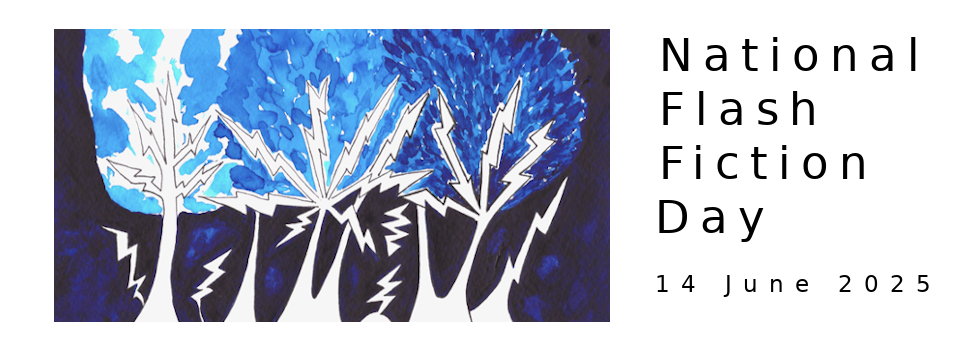Hello Flash-Fictioneers,
- Our biggest news is probably the announcement of our anthology, Jawbreakers. I shan't reiterate all that's been said before, but you can read all about it at http://
nationalflashfictionday. . Just to say that we are hoping it will be available at the beginning of May, that it will be available via Amazon as both book and Kindle or directly from me as book or PDF. I shall send out more about price and how to buy it etc. once I know more. In the meantime, why not 'Like' the new Facebook page for up-to-the-minute info: https://www.facebook.blogspot.co.uk/2012/04/ anthology-final-list.html com/JawbreakersFlash .
- In other news, we have managed to inspire the world with our efforts! New Zealand have announced their own NFFD, details at http://nationalflash.
wordpress.com/ . So do please support them in their efforts if you can. And, I've heard this morning that there will be an anthology being produced in Australia to tie in with our Day. More when I have details.
- Closer to home, we now have an event happening in Scotland, Edinburgh to be precise. I haven't had a chance to add it to our website yet, but details are at http://underword.co.uk/.
And there is a whisper of something coming along in Northern Ireland too, so stay-tuned for word of that, or get in touch if you'd like to be involved. However we still have a lack of events in London, of all places. So if you are there and want to get something happening, let me know!
- The Story Cards I mentioned in the last bulletin have arrived and the first lot have been distributed, but we still have more left. So if you want some to pass out to friends, family, neighbourhood arts venues, or to promote your event, please get in touch. The posters are on order and should be here soon. Again, let me know if you want some, if you haven't already.
- A number of competitions have closed in the last week - thank you all those who submitted - but others are still open. The Dead Ink competition in Yorkshire closes today (http://host2021.temp.domains/~nationo0/northeast.html ) and Lancashire Writing Hub's Flash-Fiction Competition closes on Friday, so don't miss out! http://www.
lancashirewritinghub.co.uk/ calendar/
- Also, Liverpool's Writing on the Wall, who are running the Flash Fiction at the end of the World competition, now have 20 entries up on the site for people to read. They will also be displaying them in a very prestigious site at the FACT arthouse and cinema in Liverpool. All the details can be found here for the final event – http://www.writingonthewall.org.uk/event-listing/flash-fiction-final.html with Author Mike Carey, who is nominated for a Hugo award, who will be reading and judging the final, and go here for all the stories and the entry page: http://www.writingonthewall.org.uk/flash-fiction-submission.html.
- Loads of you have been blogging about the Day, including featuring some interviews with me and some of my writing, So a very big thank you for that. If you would still like to, feel free to get in touch if you need anything.
- Thanks to all of you on Twitter who promoted us last Friday. That was a great boost. It would be wonderful if you could repeat that, say, every week? (Please?) And, if you haven't already, please do 'Like' our page at https://www.facebook.com/
nationalflashfictionday , share it with your friends, follows us on Twitter at @nationalflashfd and generally help get the word out. Oh, and one specific request. If you are Tweeting about NFFD it would be great if you could include the hashtag #nffd or #NFFD in all your messages to see if we can get it trending. (If you don't use Twitter, that will probably mean nothing to you. That's fine. Ignore it!)



